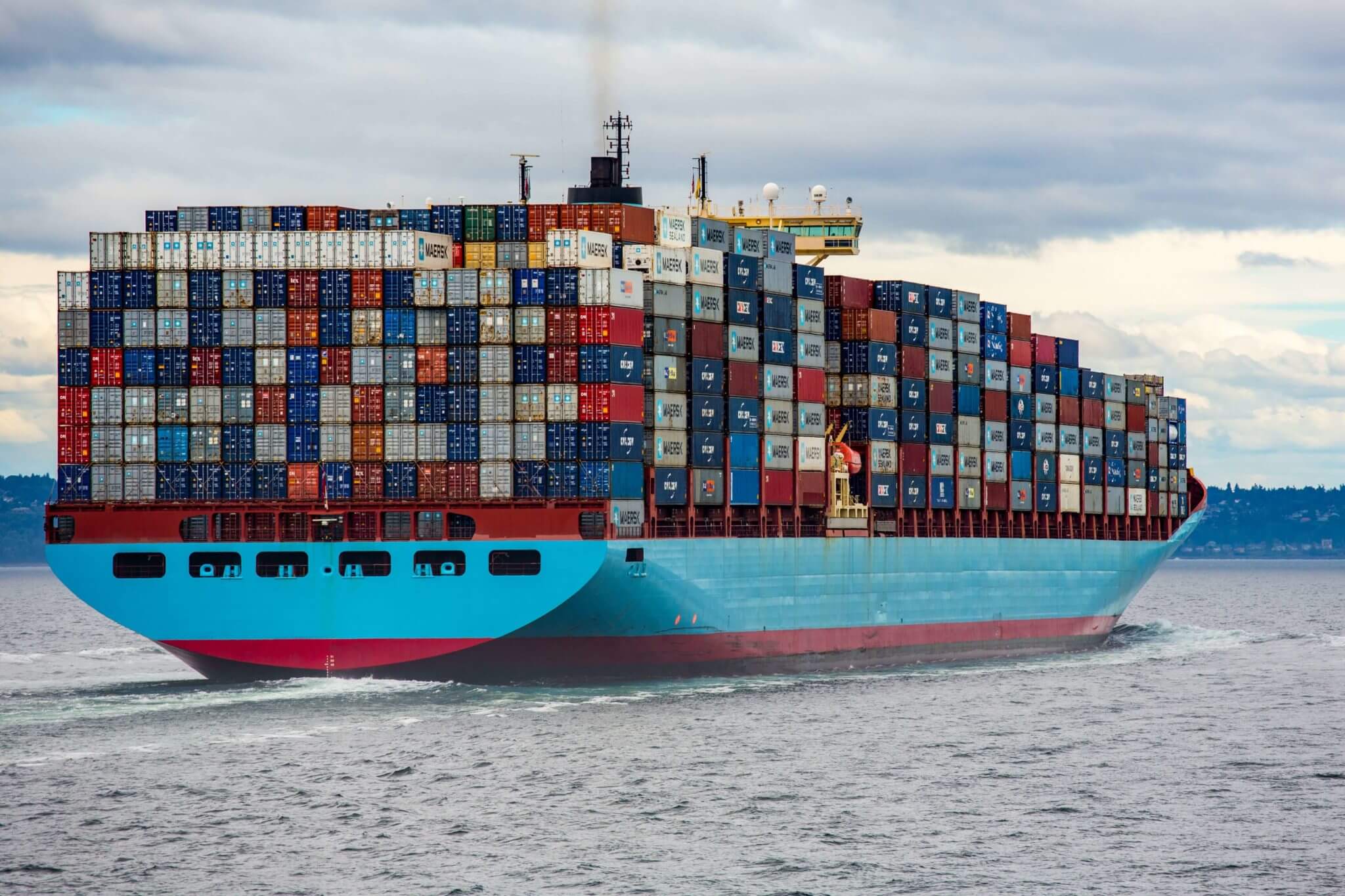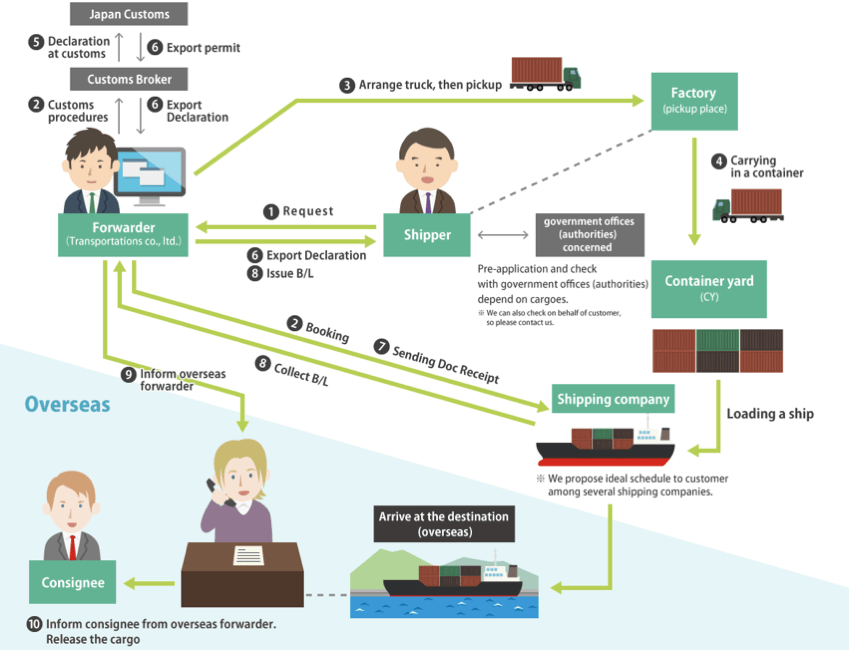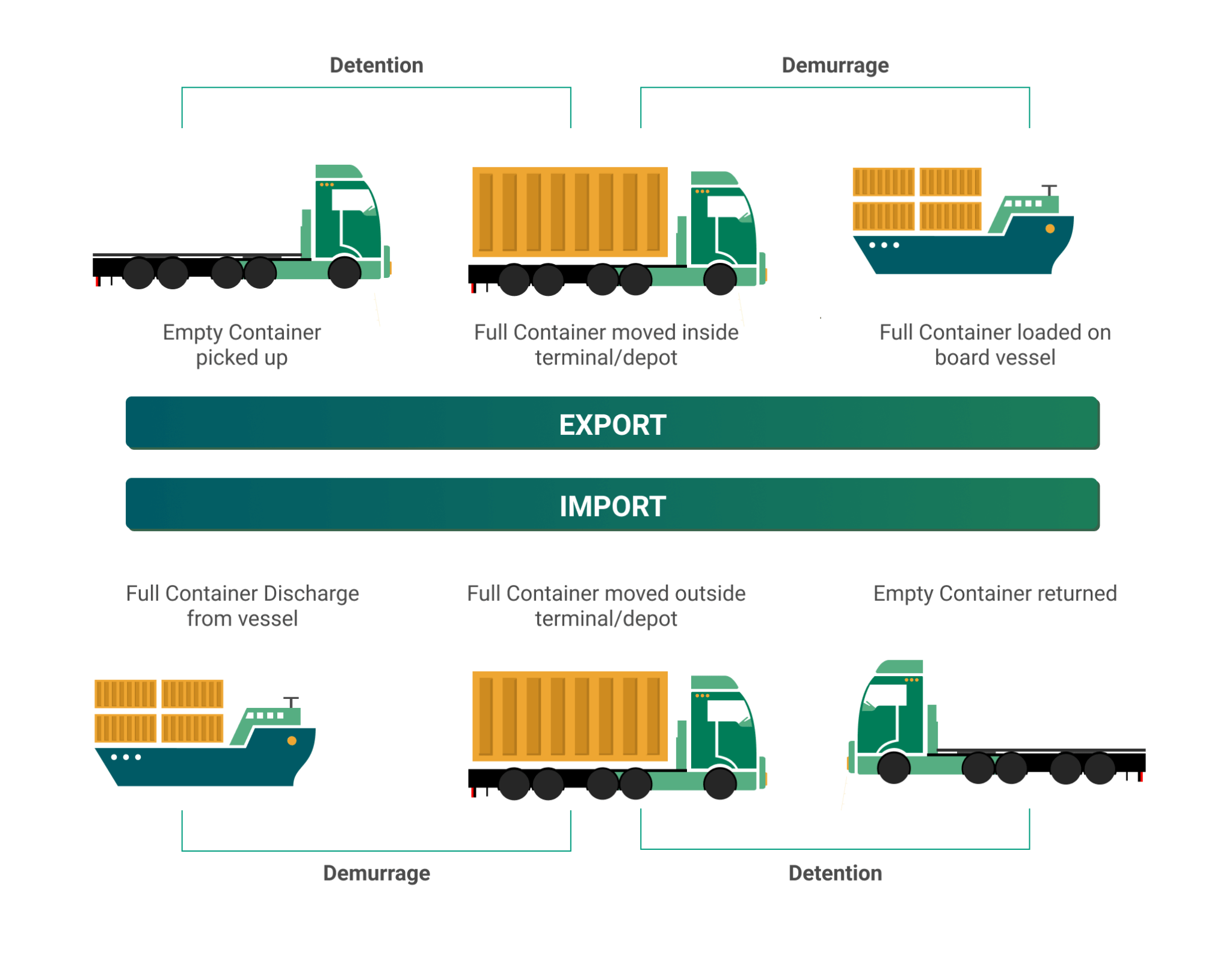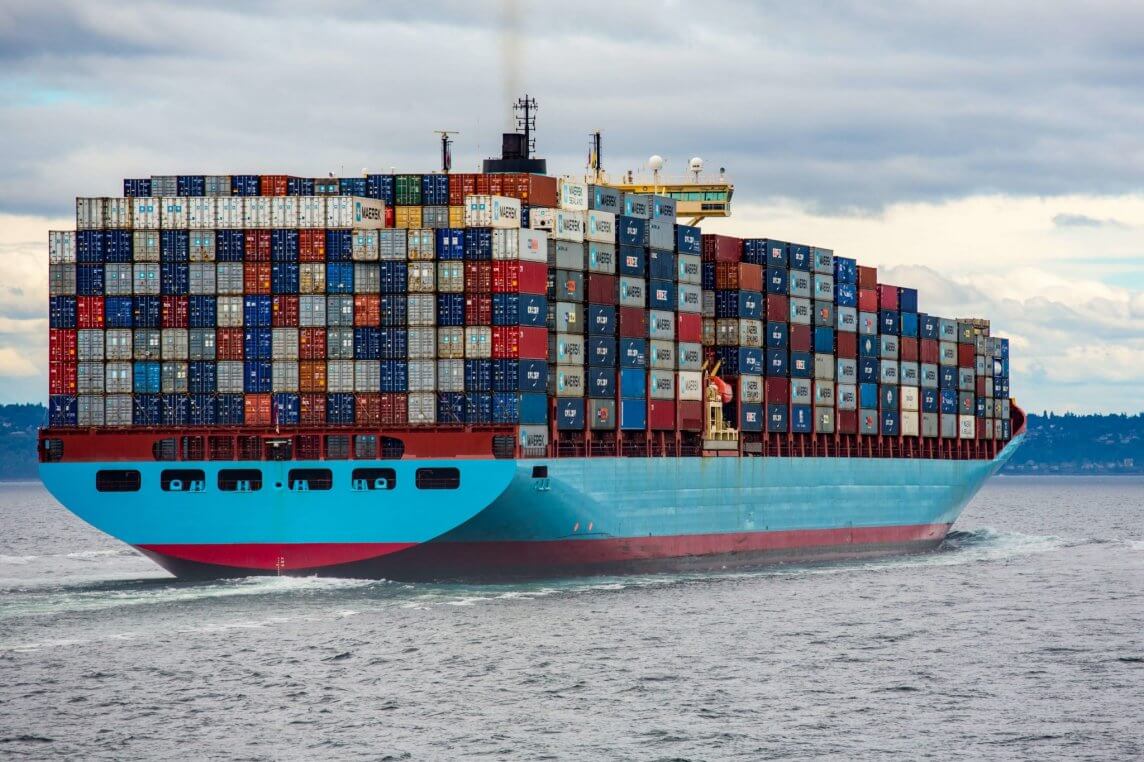Logistics is flooded with all kinds of service-providers. NVOCCs and freight forwarders are two such groups that are commonly mistaken to be the same.
You’ll learn:
- NVOCC is an ocean carrier that transports cargo without operating any vessels
- Freight forwarder is a multi-functional supply chain operator
- Functions of freight forwarders
- Key differences between NVOCC vs. freight forwarder
- NVOCC is cheaper than a freight forwarder
- Freight forwarders use SOC containers to avoid carrier surcharges
It’s true that both NVOCC and freight forwarders help ship your goods. It’s also true that they can issue their own House Bill of Lading (HBL). But despite these glaring similarities, the two players are fundamentally different from each other.
What is NVOCC in shipping: Meaning
NVOCC stands for Non-Vessel Operating Common Carrier. As the name suggests, an NVOCC is an ocean carrier that transports your cargo without operating any vessels. Now, how do they do that without owning any ships?
NVOCC actually buys space from vessel-operating common carriers (VOCC) and resells it to shippers. They enter into an agreement with ocean carriers to provide freight business to them. So, they create their own tariff and charge you for the space on the shipping lines.
As a result, NVOCC becomes the ‘carrier’ and whoever buys the space becomes the ‘shipper’. They dutifully undertake the liabilities and responsibilities of carriers, including the issuing of HBL.

Who is an NVOCC agent?
An NVOCC agent is a representative of the NVOCC they’re a part of. They’re usually your first point of contact when you’re approaching an NVOCC. Working as a bridge between the NVOCC and shippers, it’s usually the NVOCC agent who books the slots for shippers.
To put it simply, they’ll aid you in all your queries. You can state your requirements and request freight quotations and other details such as container capacities, packing dimensions, and much more.
What is the function of an NVOCC?
You must be wondering why people opt for NVOCC. Why don’t they directly get in touch with the shipping lines? Honestly, the chances of you hearing back from NVOCC is far greater than a shipping line.
NVOCC is much more flexible and attentive to the requirements of small-businesses. In fact, they’re likely to fix you the most cost-effective shipping at low freight rates. And nobody wants to lose out on that advantage, right?
But, before you decide to search NVOCC, it’s crucial to know about their scope of activities. The functions of NVOCC are:
- Concluding international goods carrier contracts as carriers with the shippers.
- Delivering and receiving cargo in the form of carriers.
- Issuing various transport documents along with the House Bill of Lading.
- Handling booking space as well as the mainline carrier shipping.
- Arranging payments for transportation between port to port along with other essential charges.
- Consolidation as well as deconsolidation of containers using third party services or through Container Freight Station (CFS).
Who is a freight forwarder?
A freight forwarder is a supply chain expert who arranges for the seamless movement of cargo. And they do that by arranging and facilitating the transportation of your goods via different modes: ocean, rail, air, or road. The only golden rule about freight forwarders is that they are not the ones moving your cargo, only arranging for it.
Exporting goods is not easy with way too many steps, documents, and certificates to clear. It’s almost impossible for novice exporters to know all about these. So when you’re hiring a freight forwarder, you’re basically paying them to get all of these in order. As a result, in many instances, the freight forwarders are referred to as ‘shippers’ in relation to the ocean carriers.
In a way, freight forwarders are multi-functional operators — jack of all trades!
Let’s try to understand what freight forwarders actually do.
What is the function of a freight forwarder?
Freight forwarders are one of the most popular players in logistics. To put it simply, they act as a travel agent for your cargo. Let’s see this through an example.
For instance, you have to ship your cargo of seafood from Shanghai to Hamburg. A freight forwarder will arrange all the necessary documents, reefer containers, trucking, book a carrier for reefers, inspection and custom clearance in Hamburg, and finally the delivery to the distribution center in Germany.
Although, it’s not as simple as it sounds.

A freight forwarder uses their existing networks with all the other players of supply chain to provide following functions:
- They arrange cargo movements for domestic and international destinations.
- Arranges storage for the cargo.
- Negotiate freight rates on behalf of the exporter.
- Take responsibility to dispatch shipments under their own freight contract
- They process and prepare documentation related to all shipment activities.
- Can issue their own House Bill of Lading.
- They’re able to arrange custom clearance.
- Offer other services relating to a trade such as bank paperwork, cargo insurance and inventory management.
However, freight forwarders also work in different ways. We’ve seen a rise in digital freight forwarders in the past years, changing how freight forwarding is done.
NVOCC vs Freight Forwarder: Key differences
By now you know the definition and functions of both NVOCC and freight forwarders. It’s clear that many of their functions are the same, but they’re still not the same entities. Confused? Let’s look at the basic differences between NVOCC vs freight forwarder.
You just have to remember that the difference between the two lies in the kind of relationship they have with shippers and other players. An NVOCC acts as a middleman between the shipper and the vessel operator and also issues their own bills of lading. Whereas, a freight forwarder is authorized by the shipper to act and make decisions on their behalf.
Another major differences between NVOCC and freight forwarder is that you’ll (exporter / importer) always appoint the freight forwarder to act as your agent, whereas you’ll employ the services of NVOCC as a carrier.
We have created a table for you that lists out key differences between NVOCC vs freight forwarder.
| Freight Forwarder | NVOCC |
| They are associated with the International Federation of Freight Forwarders Association (FIATA); following procedures according to FIATA standards. | They are not linked with any international associations, thus, do not follow any standard procedures. |
| Freight forwarders are agents to shippers. | NVOCCs are carriers to shippers. |
| Freight forwarders do not operate or own containers. | NVOCCs manage or hold cargo containers. |
| Freight forwarders typically own and operate the warehouses they use for the cargo they load to/from airports and seaports. | NVOCCs do not own and operate warehouses. Only large NVOCCs that take on nearly all functions of freight forwarders own warehouses. |
| Freight forwarders around the world cooperate in their operations to reduce costs and improve timely deliveries. | NVOCCs work independently, using agents or third-party companies to support them. |
| Freight forwarders may function as agents of NVOCCs. | NVOCCs work independently. |
NVOCC vs freight forwarder: How to choose
Now that you’ve understood the difference between the two players, it’s time to figure out whose service fits you the best. Frankly, it all boils down to three parameters:
- Level of service
- Cost
- Availability
The first thing you need to decide on is what level of service you’ll be needing. If you know what you’re doing and only need a passage on a vessel, then NVOCC will save you a lot of money.
On the other hand, a freight forwarder will listen to your requirements and assist you in finding the best route for shipping your goods, arrange the containers and transportation, find best freight rates, and provide other services at higher expense. It’ll be worth the money to appoint a freight forwarder if you have no to less awareness about shipping processes.
But if money is a constraint, then rest assured that NVOCC will save you money. By going directly to NVOCC, you’ll save the middleman fee of a forwarder at the cost of losing out on extra additional services.
There may also be such times when the choice comes down to who is available. In the current container global crisis, not all NVOCC and freight forwarders have containers to meet your demands. In such situations, it’ll be best to go with who is available.
NVOCC and freight forwarder avoid surcharges with SOC containers
The truth about the shipping industry is that it’s extremely volatile. You’ve seen how the COVID-19 pandemic sky-rocketed the freight rates in almost all parts of the world. Plus, the slow-down in global trade resulted in Carrier-Owned Containers (COC) piling up at depots. To recover the losses, the ocean carriers relentlessly charged NVOCC and freight forwarders with detention and demurrage charges.
Anybody who knows about these charges knows that they’re mainly the sore points for both NVOCCs and freight forwarders. These charges are levied by ocean carriers when COCs aren’t delivered back within the allowed free days. Calculated per day, the demurrage and detention charges, over-time, become huge fines.

Fortunately, NVOCCs and freight forwarders can do away with these charges if they bring Shipper-Owned Containers (SOC). Essentially, they’re no longer bound to pay the demurrage and detention charges to carriers if they’re using their own containers.
Because of this huge advantage, NVOCCs and freight forwarders are now actively using SOC boxes in their services. Our recent edition of Mystery Shopping Survey on SOCs found that the use of SOCs has grown by 18% since 2019.
Source: xChange Container


